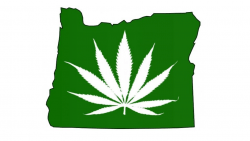
The Oregon Health Authority’s interpretation of recent legal changes rocked the Oregon cannabis industry and community, halting the legal production and sale of cannabis extracts. Processing companies were starting to boom in Oregon, employing people, increasing revenue generated by dispensaries and helping patients that have relied upon their medicine. Representative Ann Lininger and Senator Ginny Burdick, the co-chairs of the Marijuana Legalization Committee sent an email to the Oregon Health Authority Director today, urging OHA to take measures that could alleviate the issue.
It appears that OHA has listened and has developed a policy that will exempt processors from criminal liability so long as they have applied for an OHA processor license (instead of having to actually have received the license.) The agency will start accepting applications on April 1st (no joke) and those that have applied can process extracts and provide them to licensed dispensaries. Dispensaries will be able to sell extracts made by these provisionally-licensed processors. While the extracts industry has been been on hold for a few weeks, this new policy will greatly improve the situation as business can resume at the start of April.
While this has been understandably frightening for many and there are still some more issues to be worked out, Oregon lawmakers and OHA policy makers should be commended for addressing the concerns of extractors and patients.
The new rule from OHA:
A medical marijuana processing site that has submitted a complete application for registration with OHA is exempted from criminal liability pursuant to ORS 475B.475. The registration process with OHA opens on April 1, 2016.
The letter from Marijuana Legalization co-chairs Representative Ann Lininger and Senator Ginny Burdick that spurred the new change:
OREGON LEGISLATIVE ASSEMBLY
VIA ELECTRONIC TRANSMISSION: lynne.saxton@state.or.us
March 23, 2016
Ms. Lynne Saxton
Director, Oregon Health Authority
500 Summer Street, NE
Salem, OR 97301-1097Dear Director Saxton:
We are writing to express concern over the possibility of a gap in the production of cannabis extracts that could deprive patients of medicinal marijuana and undermine the viability of numerous Oregon small businesses. Specifically, we urge the Oregon Health Authority (“OHA”) to find a path forward that would enable safe production of cannabis extracts to continue without undue interruption during the licensure start-up phase.
Background on the Problem
In 2015, the Oregon Legislature passed House Bill 3400, which directed the Oregon Health Authority to license and regulate medical processors of cannabis extracts, concentrates, and edibles. The Oregon Health Authority has been working hard to implement the various pieces of 3400.
The rule making process is still underway, and we understand there is currently no avenue available for licensing medical processors. We understand the opportunity to apply for licensure will begin on April 1st, 2016, and once an application is submitted, additional time will be required for inspections and review.
This situation creates a potential gap in the availability of cannabis extracts for medicinal use. HB 4014 Sec. 39 defines extraction without a license a class B felony. Since there is not yet a process defined in rule making for commercial extract makers to obtain licenses, we understand that many extractors plan to cease operations rather than risk criminal and administrative penalties. This could cause a gap in availability of extracts for medicinal use, and it could drive extract makers out of business.
This outcome would conflict with our legislative intent to provide a smooth transition into thenew regulatory system for medical marijuana patients and for small businesses operating in the legal cannabis space. It would also drive production and sales into the illegal market, conflicting with legislative intent to comply with the Cole Memo.
Possible Solution
There may be a way to resolve this situation by providing a provisional license or some other kind of temporary safe harbor for commercial extract makers that have been operating in compliance with the rules. Oregon has in some instances allowed cannabis sector participants that have applied for permission to undertake an activity to engage in the activity on a temporary basis. The rationale for that approach—to avoid undue disruption to patients and businesses— would be well-served here.
Oregon has allowed applicants to be considered rightful participants with respect to qualification as a “marijuana processing site” in ORS 475B.410(13). The statute defines “marijuana processing site” to include a site that has applied for registration. Similar logic allows Oregon Medical Marijuana Program cardholders to receive protection simply by retaining their certified application copies as part of their “safety packet.” The same approach allows growers seeking an Oregon Liquor Control Commission license or a grandfather determination from OHA to have a provisional stay on plant limit reductions.
We encourage OHA to find a path forward—perhaps using this logic or some other basis—to ensure that rule abiding medical marijuana patients and extract makers are protected from a harmful disruption as we move into our new regulatory system. Thank you for your hard work to protect patients and communities as we evolve our state’s approach to regulating legal cannabis.
Sincerely,
Representative Ann Lininger
Co-chair, Joint Committee on Marijuana Legalization
Senator Ginny Burdick
Co-chair, Joint Committee on Marijuana Legalization








